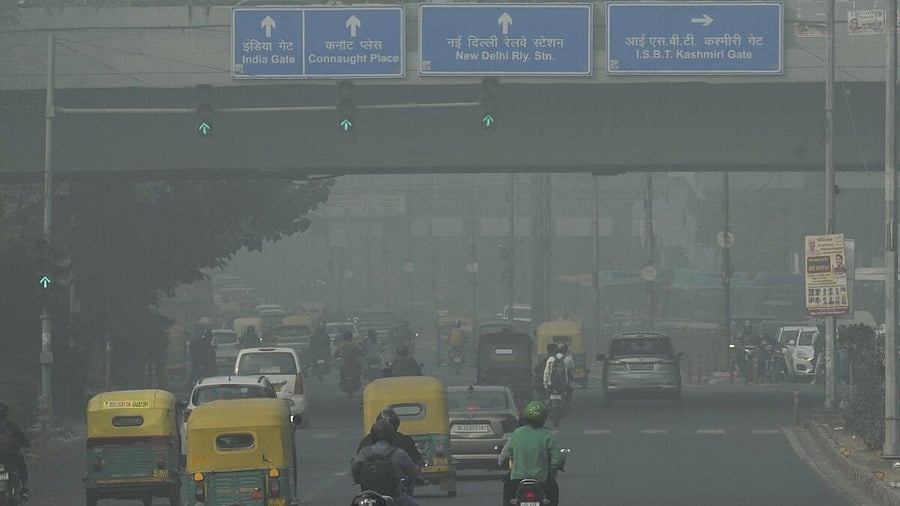
Vehicles move amid smog.
Credit: PTI Photo
Air pollution in India has gone from being a distant environmental concern to something that impacts all of us directly. Cities get wrapped in smog every winter, and the air we breathe becomes dangerous.
Beyond the coughing, breathlessness, and doctor visits, another aspect we often overlook is the financial strain.
Managing health issues caused by pollution can quickly become expensive, making health insurance more important than ever.
Impact on your health
The smog you see isn’t just a nuisance; it’s a mix of harmful particles and gases like PM2.5 and carbon monoxide, and they can harm your body in surprising ways:
Immediate problems: Breathing in polluted air can trigger asthma, bronchitis, or infections that need urgent medical care. Kids, older adults, and people with existing conditions are the first to feel the impact.
Serious long-term illnesses: Over time, pollution can lead to chronic conditions like lung damage, heart disease, or even cancer, which often require lifelong treatment and care.
Weakened immunity: Bad air doesn’t just harm your lungs. It can lower your immunity, making you more prone to illnesses and even mental health struggles like anxiety and stress.
The cost
The financial toll of pollution-related illnesses can be staggering. A single hospitalisation or diagnostic test, like a CT scan, can burn a hole in your pocket. For chronic illnesses like COPD or heart problems, the costs keep piling up year after year—sometimes running into lakhs. And it’s not just about medical bills; missed workdays and the emotional strain of caring for a sick family member can add to the burden.
Easing the pressure
Health insurance isn’t just a safety net; it’s a way to protect yourself and your family from the unexpected costs that come with pollution-related health issues. Here’s how it can help:
Covers pollution-linked ailments: Most health plans cover hospitalization and treatment for asthma, COPD, or heart problems caused by air pollution.
Critical illness riders: These riders provide a lump sum pay out to help manage treatment costs and other expenses for severe illnesses like lung cancer.
Daily cash benefits: Some policies offer cash pay-outs during hospital stays to cover things like travel, food, or loss of income for caregivers.
OPD coverage: Outpatient care riders take care of doctor consultations, tests, and medications, so one doesn’t have to wait till they get hospitalized to use your policy.
Preventive care perks: Many policies now include wellness programs, health check-ups, and consultations with specialists to help catch issues early.
Cashless hospitalisation: This ensures you can get treated at network hospitals without worrying about upfront payments during emergencies.
Family plans: Family floater plans cover everyone under one policy, offering much-needed protection for kids and seniors who are most affected by pollution.
Protect yourself
We all hope for cleaner air, but until that becomes a reality, protecting your health is a priority. Simple steps like wearing masks, using air purifiers, and avoiding outdoor activities during high-pollution hours can help. But these measures only go so far.
Investing in a good health insurance policy can give you peace of mind. It ensures you’re financially prepared for both immediate and long-term health challenges caused by pollution. By combining proactive health measures with the right insurance, you can protect yourself and your family from the dual burden of illness and expenses.
(The author is CEO, Reliance General Insurance)